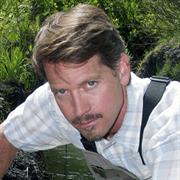
Mountainous watersheds provide as much as 90% of water resources worldwide, yet predicting watershed behavior is increasingly difficult while drought and changes in snowpack and snowmelt timing reshape environmental interactions taking place within them, which can influence water quality and quantity.
CESD scientists lead research focused on watershed functioning that can be useful to predicting water availability and quality in drought-impacted regions now and decades from now. We established one of the most comprehensive watershed research projects in the world at a Colorado River watershed testbed where collaborators from 50-plus scientific institutions study changes to the mountain environment. The research site is outfitted with a sophisticated system of remote sensors, wells, drones, and satellites to gather data 24/7 about factors including soil temperature, humidity, and changes in soil microbe activity. This data is used in computer models to predict water supply and quality days, months, years, or several years into the future. Additionally, CESD researchers have led studies in California to determine how wildfires affect groundwater supply, and efforts to advance watershed science using machine learning.
This work can help inform ecosystem and water management in the coming decade as water availability becomes more uncertain.













Recent Publications

In the Rocky Mountain headwaters of the Colorado River, the snow that falls in winter represents a savings account of water that will run downstream each spring. Our scientists are tracking water and weather in the Rockies, in order to plan for drought in the American West and similar regions.